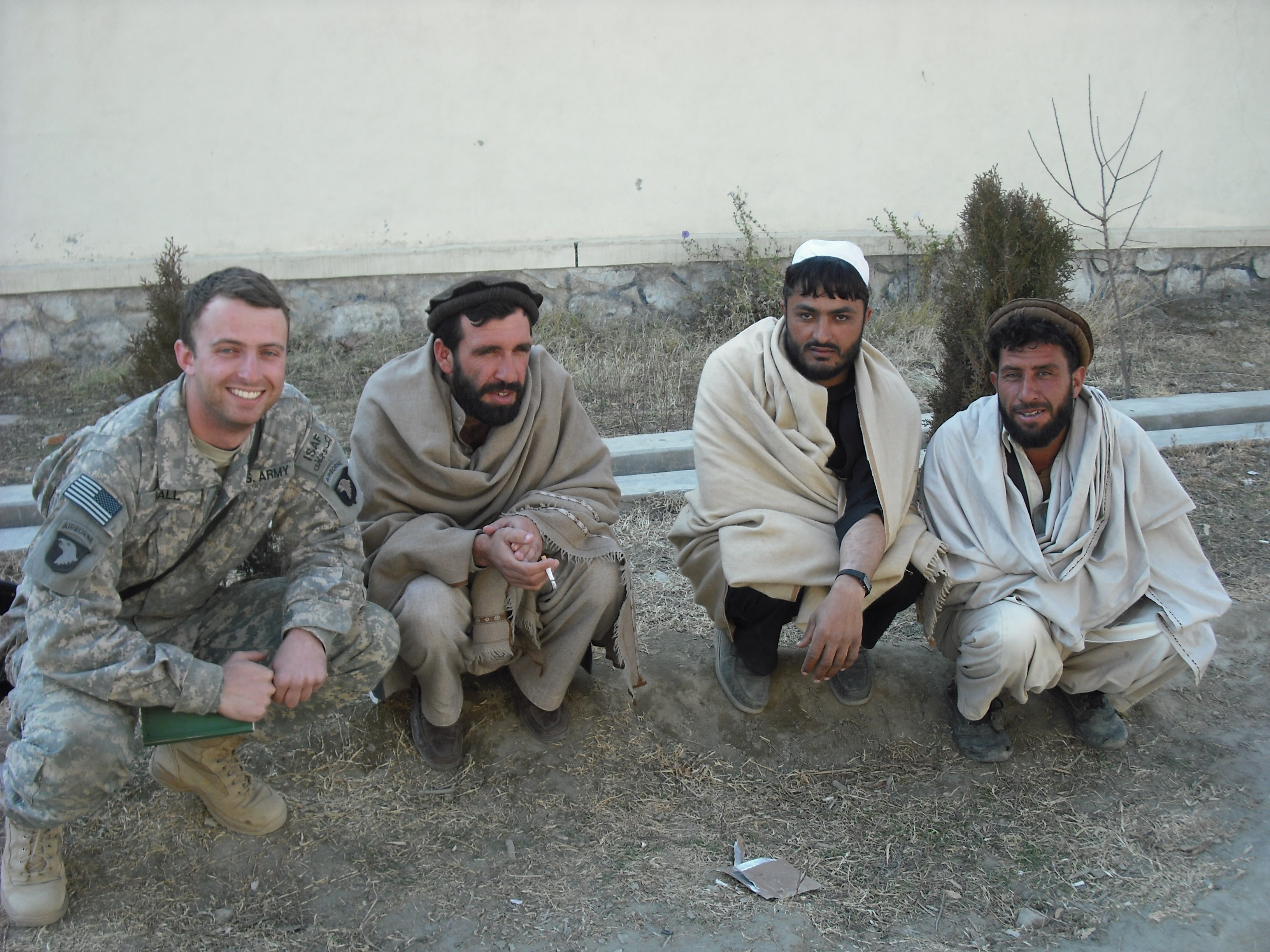Army Veteran Ball ’08: “Afghan Translator Deserves Special Immigrant Visa”

In 2010-11, when Matthew Ball ’08 was stationed in the Tora Bora region of Nangarhar province, serving in the 4th Brigade of the 101st Airborne Division, he and the other soldiers relied on Qismat Amin, then only 19 years old, for both information and communication with the local Afghan residents.
Now a Stanford law student, Ball is on a personal mission: To fulfill what he views as his duty to the young interpreter who worked with him during his deployment.
“There’s a really strong bond that a lot of soldiers have with interpreters—they’re crucial members of the team. … There were times when my life was in Qismat’s hands and Qismat’s life was in my hands,” Ball told the San Francisco Chronicle reporter Hamed Aleaziz for an Aug. 20 story.
Ball said that Amin, as someone who has worked closely with the Americans, is now in life-threatening danger and must stay in hiding for as long as he remains in Afghanistan. Although Amin has applied for a Special Immigrant Visa (SIV) to the United States, designated for those served as interpreters, his paperwork has been awaiting approval—undergoing “administrative processing”—for more than three years. Officials acknowledge that less than a year is usually adequate for the security checks to take place.
Ball is not just sitting back and waiting. He’s looking for answers and has reached out to his networks to help him get the results he wants. Named a 2015 Tillman Scholar by the Pat Tillman Foundation, Ball learned of Tillman Scholar Adrian Kinsella, who had advocated successfully to bring his Afghan interpreter to the United States. Ball took action: “With Adrian’s help, I initiated a Congressional Inquiry into the status of my interpreter,” he told Jill Walsh, writer for the Tillman Foundation.
Ball has also enlisted his Stanford community. “We are working on getting more Congress people to initiate inquiries with the State Department and the other agencies that handle the case. The petition has been signed by a group of Stanford Law students who are in the International Refugee Assistance Project (IRAP),” he said. While he noted last April that a response from the embassy indicated that they planned to expedite Amin’s case, as of Sept. 1, Amin is still not in the States.
“It’s an interesting time to be trying to get my interpreter here because of all the controversy about refugees coming to the United States,” he acknowledged. “Personally, I think we have a moral obligation to uphold our promise to those that helped us overseas. They’ve done so much more to prove themselves than we could ever ask—my interpreter was wounded in combat helping defend American soldiers.”
In an interview with The Wesleyan Connection, Ball emphasized that aspect: “There is no better vetting process than to spend 12 months living with soldiers every day.”
Ball’s parents concur and have offered to house Qismat Amin in their Denver home—when and if he arrives. Ball is deeply grateful for their support, even as he is able to acknowledge, in a quick flash humor “the sit-com potential” of a young Afghan living in his middle-aged suburban parents’ home.
Not without hope, Ball can be optimistic: “There’s a lot of support for refugees, for translators for American forces coming to the United States,” he said. “Whenever I tell someone about this, the overwhelming reaction is ‘What can I do to help?’ So many people have offered to help Qismat once he gets here—donate furniture, find him job. That’s the good thing: he’ll come here to a community of open arms.” But the dire reality: “The trouble is, of course, getting him here.”
A College of Social Studies major at Wesleyan, Ball is also eager to enlist the community with ties to alma mater. “What I love about the Wesleyan community is that it very much takes world events seriously. And in this case, there is something you can do about it,” he said.
“Talk to your local representative. The current SIV program is under threat. There were 3,000 positions open last year; they haven’t settled on a number they’ll admit this year. The program used to have broad bi-partisan support, but has been blocked by several key senators concerned about Muslims immigration into the US. The more people can reach out to their elected representatives, telling them to sustain SIV program, or even expand it, and eve expanded for interpreters who have helped US servicepeople—I think that helps. They need to hear that.”

